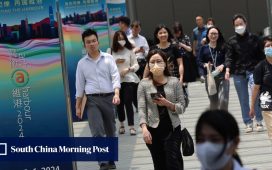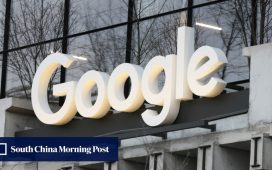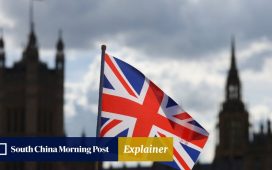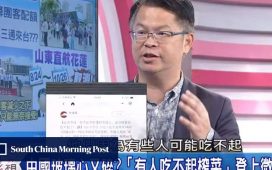Potential sanctions and global headwinds will have a minimal effect on Hong Kong’s technology sector, the city’s innovation chief has said as he emphasised the importance of pressing ahead with measures outlined in a development blueprint.
Secretary for Innovation and Technology Sun Dong on Wednesday said Hong Kong was the most open and international city in China and had built a strong reputation for attracting talent, funds and technology.
When asked about potential sanctions or restrictions by the US on the import of hi-tech products in the city and how authorities would respond to external political influences, Sun said Hong Kong’s growth depended on internal policies, regardless of external changes.
“Unilaterally unfriendly policies by certain countries towards Hong Kong will have an impact, but to a limited extent,” he told a television show.
“Of course, authorities will closely monitor these developments and make timely adjustments. No matter how the outside world changes, Hong Kong’s development is dependent on internal factors.”

He added that the city’s development strategy focused on tapping into its global image, making more friends and continuing to expand its international network.
“The local innovation and technology sector has been procuring technological products from around the world for many years, without being limited to a single region,” he said.
The United States in August announced plans to restrict US venture capital and private equity investments in Chinese firms specialising in semiconductors, microelectronics, quantum information technologies and certain artificial intelligence systems, including companies in Hong Kong and Macau.
Since 2019, the US has enforced restrictions on specific Chinese technology companies, limiting their access to American semiconductor technology and equipment. As a result, these firms have faced challenges in procuring advanced chips and semiconductor equipment from American suppliers.
China says chip output picked up in June but remains down in first half of year
China says chip output picked up in June but remains down in first half of year
Referring to Chinese President Xi Jinping’s statement, “To forge iron, one must make oneself tough”, Sun said the government would be firm in implementing policies outlined in the I&T Development Blueprint regardless of any external influences.
The blueprint, published in 2022, set out ambitious targets for innovation and technology development with a plan to double the amount of talent, start-ups and unicorn enterprises in the city over the next decade, as well as a push for a fourfold increase in economic contributions from the manufacturing sector.
Sun said future efforts to promote new industrialisation would focus on nurturing start-ups, as well as attracting and supporting key enterprises to set up shop in Hong Kong.
Hong Kong may welcome more top European, US and Asian firms in early 2024: minister
Hong Kong may welcome more top European, US and Asian firms in early 2024: minister
He added authorities would also focus on upgrading and transforming existing local industries, particularly the manufacturing sector which had already established a presence in Hong Kong.
The Hetao Shenzhen-Hong Kong Science and Technology Innovation Cooperation Zone at the border between the city and mainland China is expected to become an important engine for Hong Kong’s innovation and technology development in the future.
Sun said the government would release more land to accelerate the development of the zone.
Authorities last month announced they would demolish the community isolation facilities at the Lok Ma Chau Loop by March, freeing up five hectares of land for the construction of five buildings in the first phase of the technology park.







